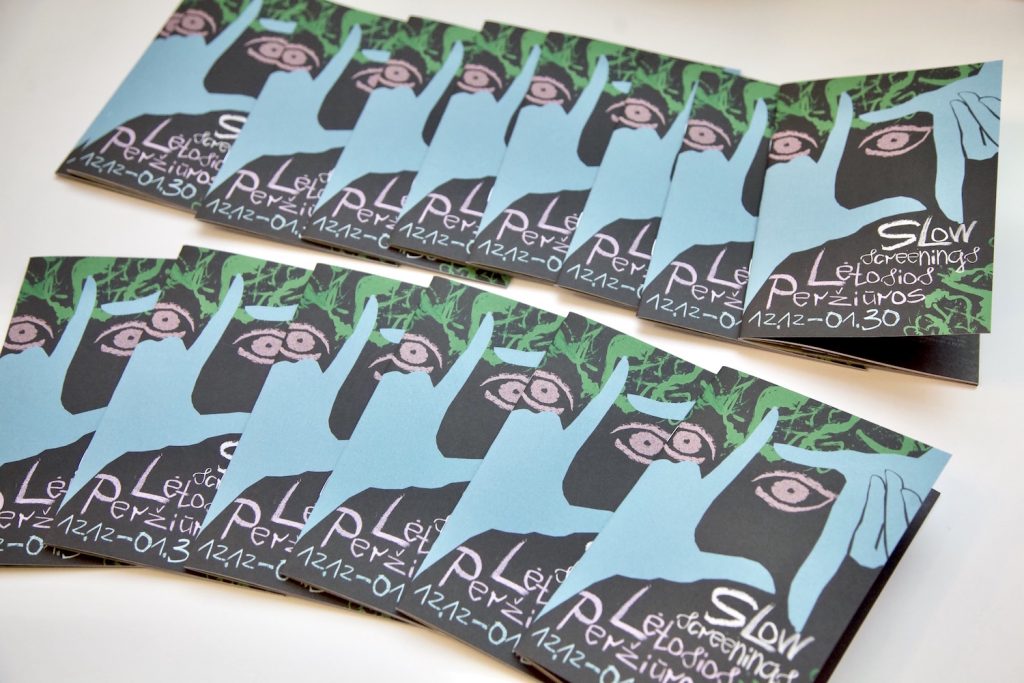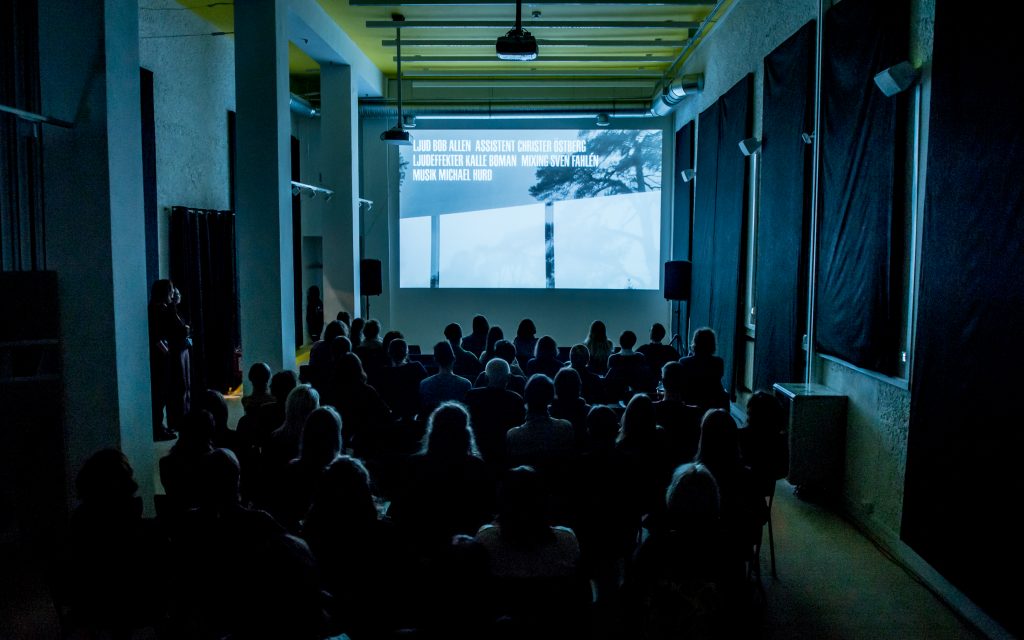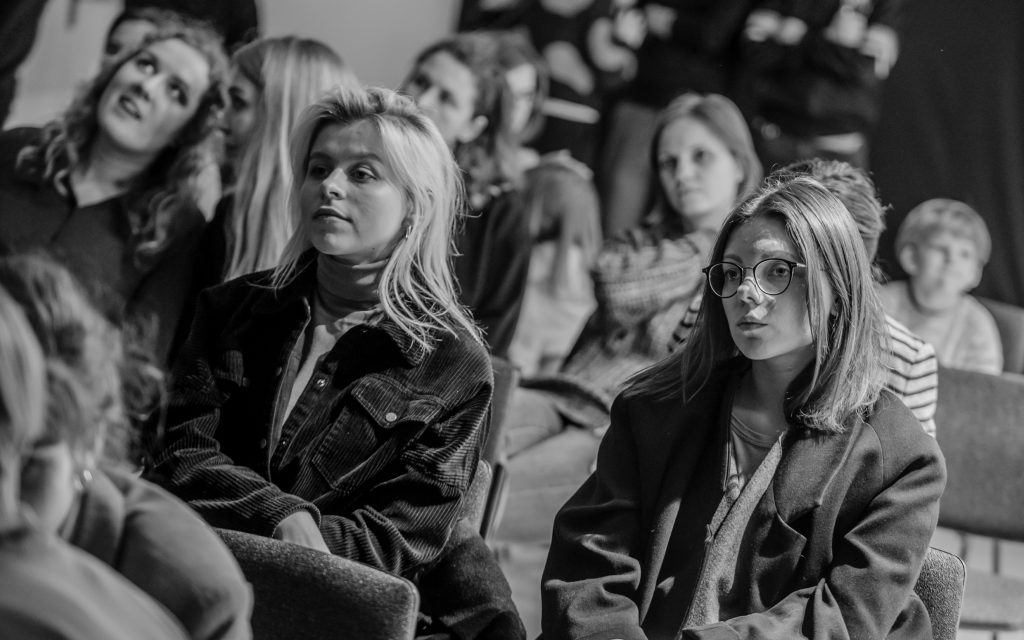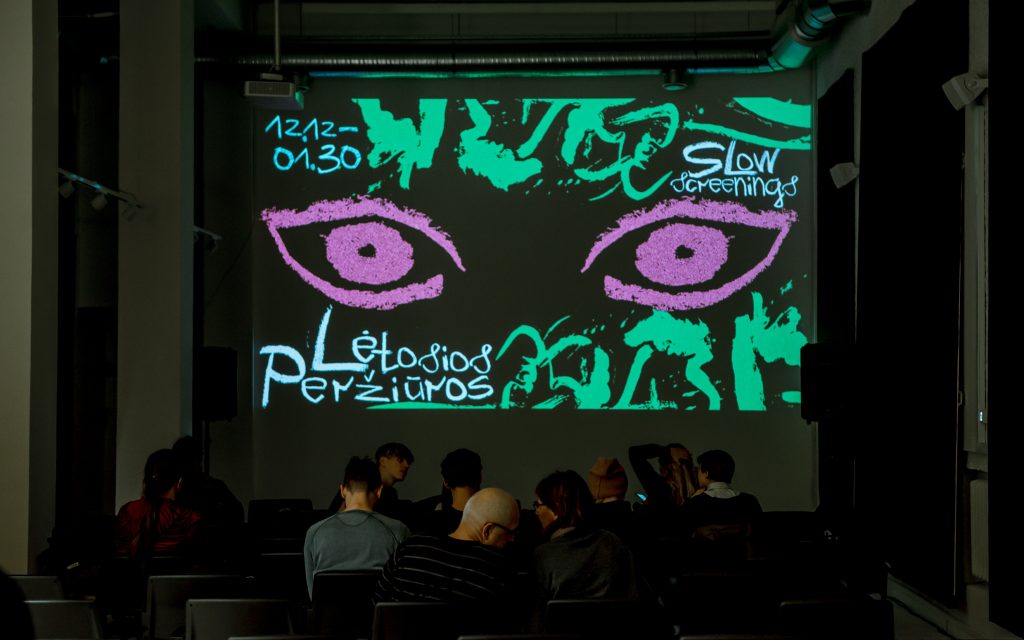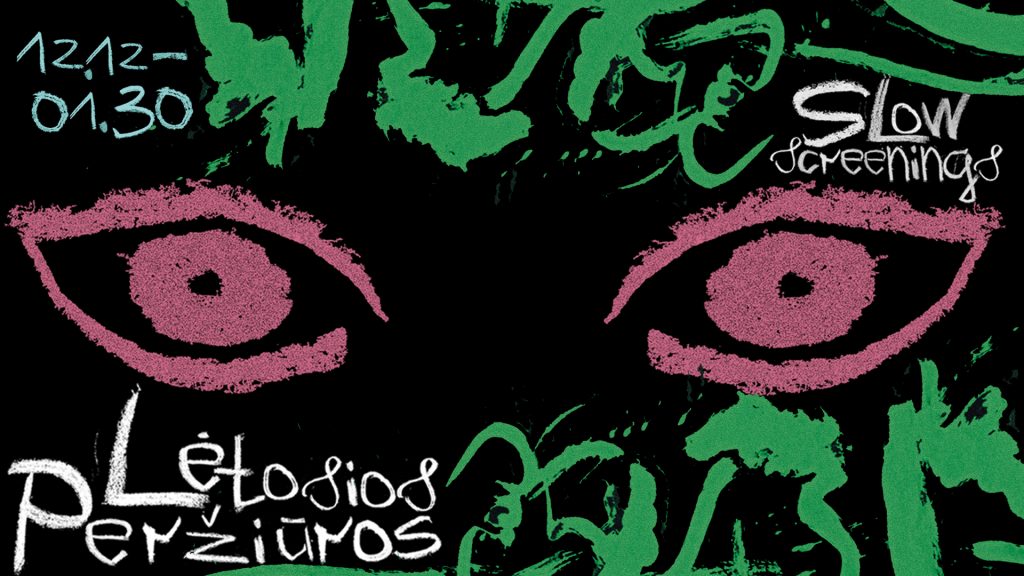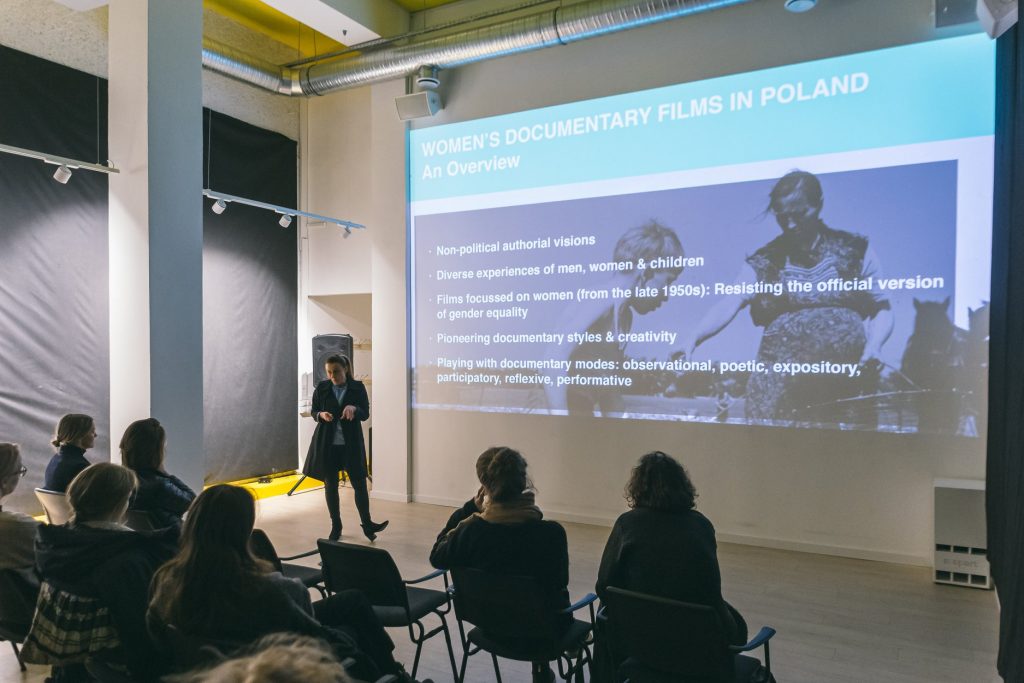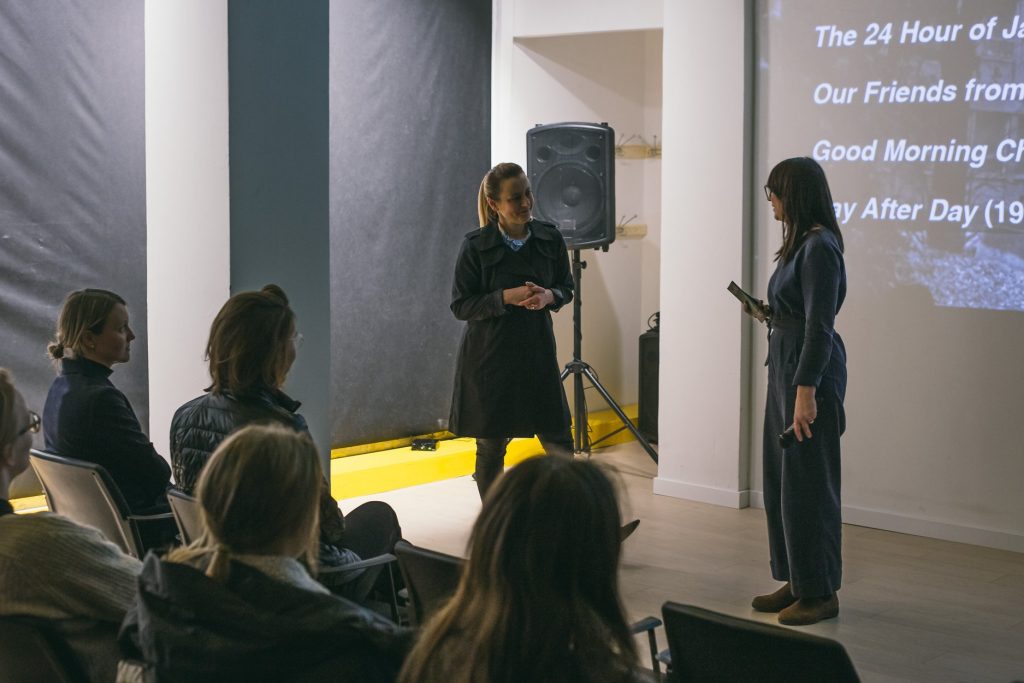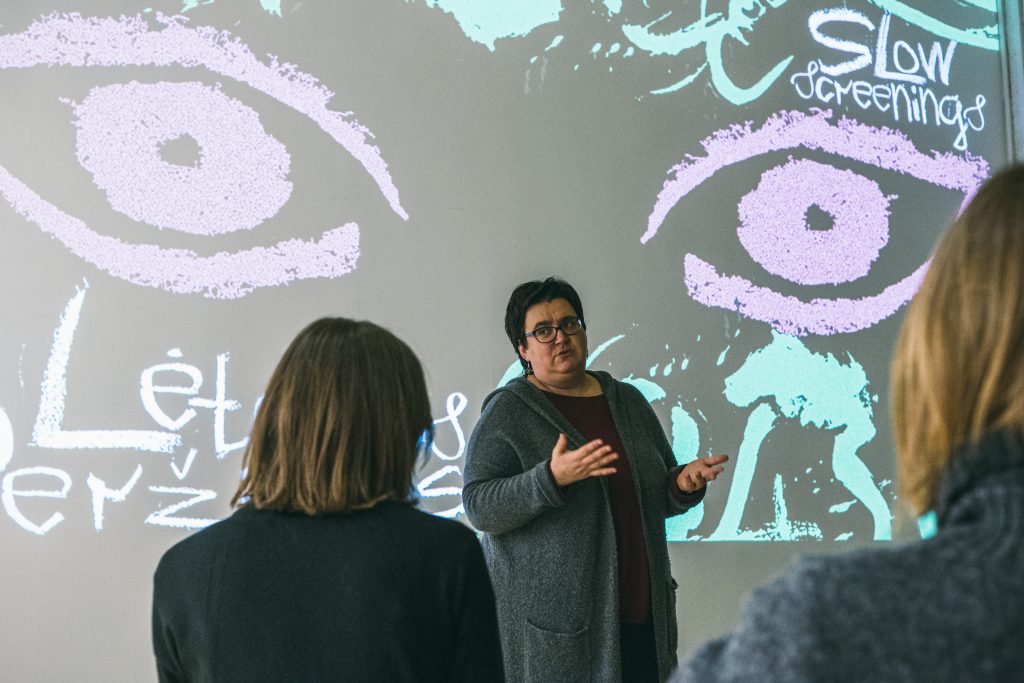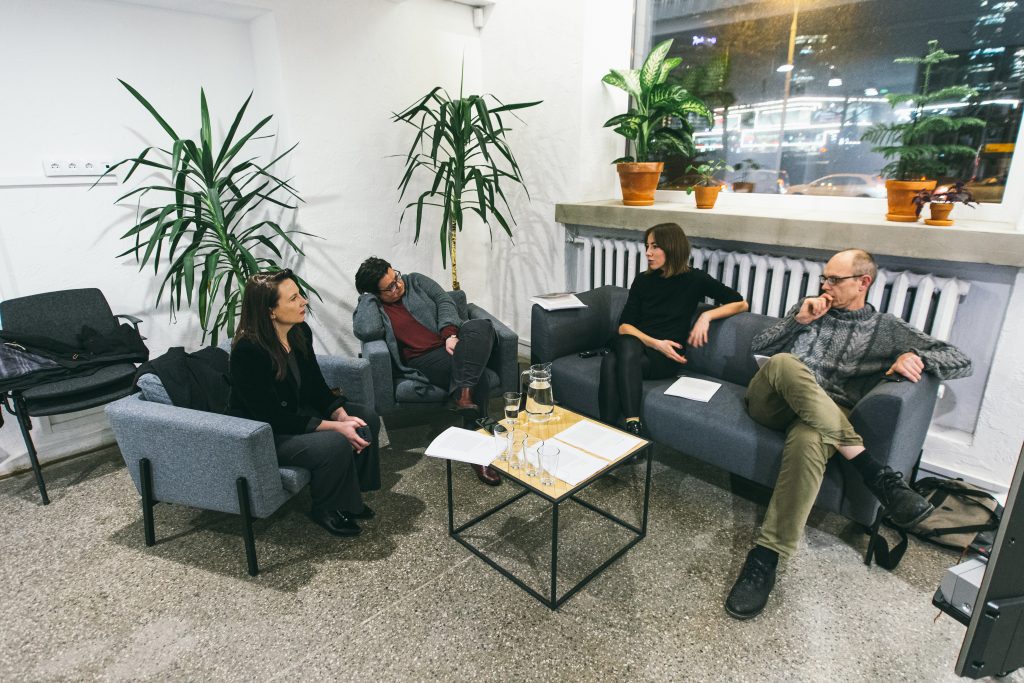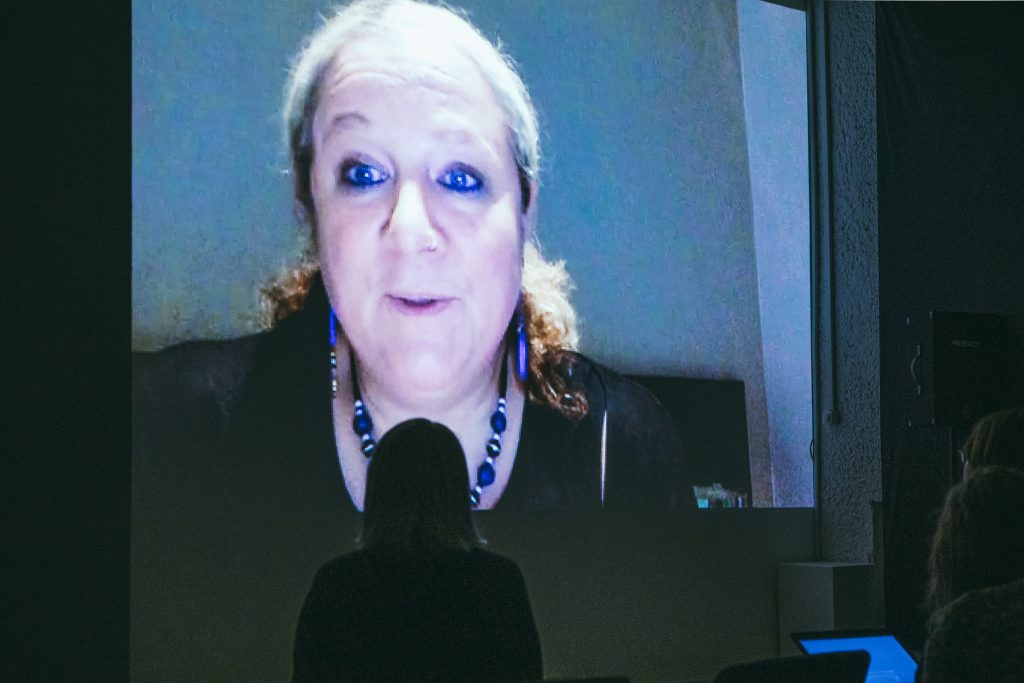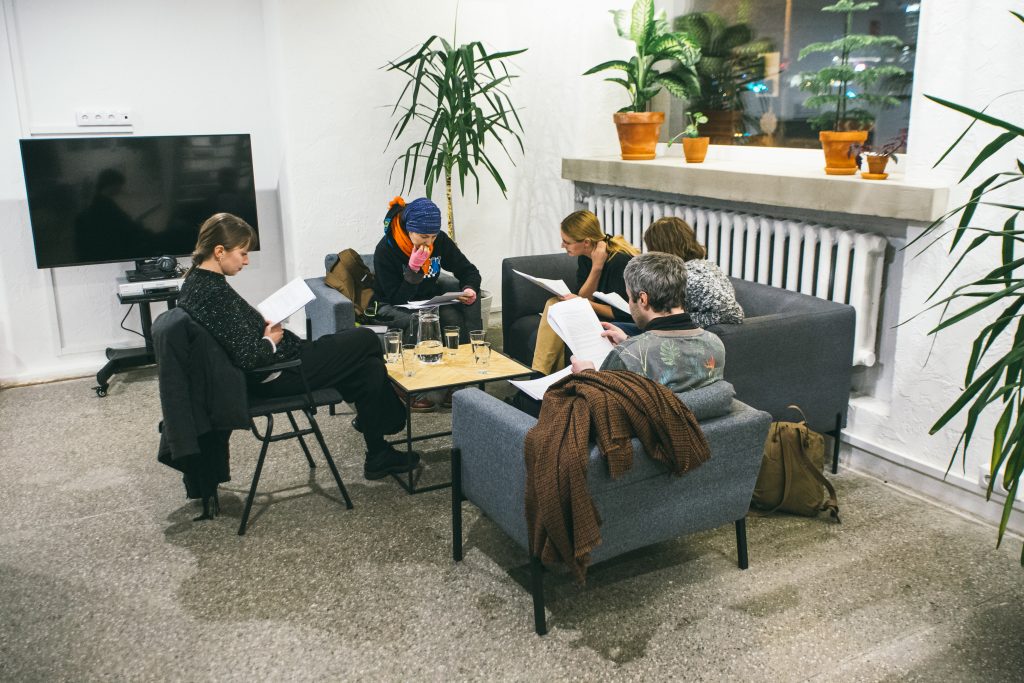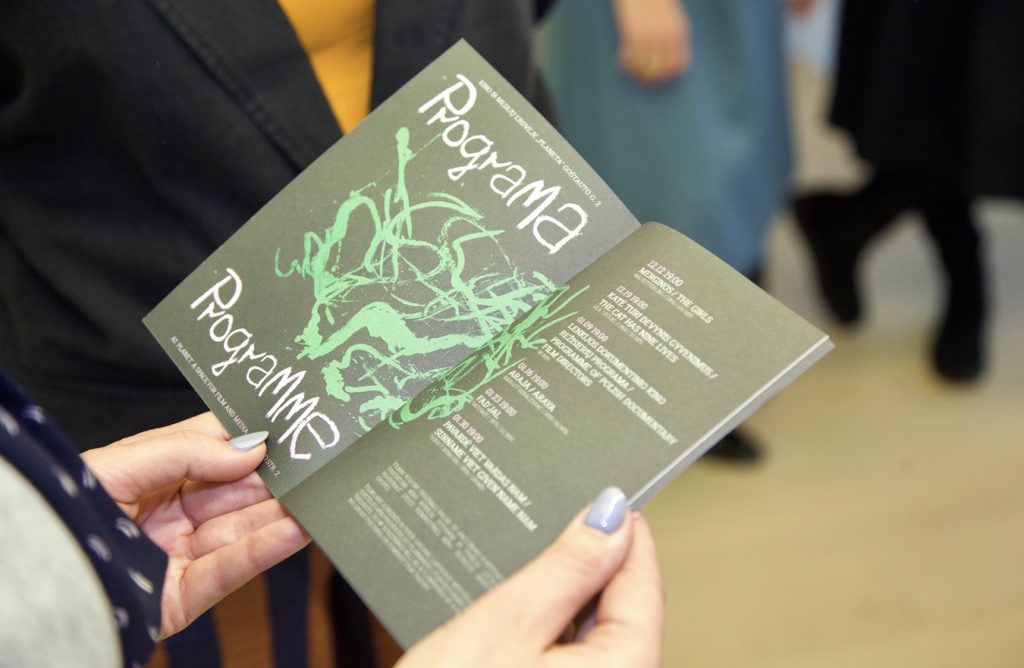Slow Screenings

Since 2016, the project is developed with the view to slow down fast cinema consumption, bring like-minded people together and contribute to the promotion of film culture in general. Film historians, researchers and critics from both Lithuania and abroad are invited to unfold a broader context surrounding films through presentations, discussions and reading clubs. Slow Screenings are organised in thematic cycles, presenting different movements or filmmakers important in the history of cinema.
Pioneers: Women Directors of Silent Cinema
During the silent cinema period, films were often made by women or dedicated to women. Yet the names of most female filmmakers have remained unwritten in the history of cinema; their contribution to the development of cinema art has been forgotten. Attention to women filmmakers who worked during the silent cinema era significantly increased in the early 21st century, when a new generation of researchers focusing on feminist cinema history takes shape. With the help of digital technologies and more active knowledge exchange among film historians (both male and female), the titles of unknown films or those that had long been considered lost started emerging, together with the names of their creators. Although the list of films made by women (directed, written, or produced) is rather lengthy, this programme concentrates mainly on those female directors who worked in the USA, France, Germany, and Russia. The films were scored live by Lithuanian composers, sound artists and DJs.
The program was carried out in partnership with “Women Film Pioneers Project” – a scholarly resource exploring women’s global involvement at all levels of film production during the silent film era; La Cinémathèque française; Goethe institut Litauen.
Brazilian Cinema of the 1960s
The more widely known movement Cinema Novo,together with Marginal Cinema which followed after, stood out for their radical ideas both in terms of content and form. Both movements turned to those Brazilian regions and members of the society that had not been represented in popular films made by the Vera Cruz film studio. The modest programme we are presenting highlights different aspects of significant Brazilian cinema movements that can often be traced in contemporary Brazilian films seeking to resist inequality, cultural levelling, and the alarming prevailing ideology. The program included films by Lauber Rocha, Carlos Diegues, Joaquim Pedro de Andrade, Ozualdo Ribeiro Candeias and Rogério Sganzerla. Films were presented by Brazilian film researchers Ela Bittencourt, Aaron Cutler, Mariana Shellard and Fabio Andrade.
The Female Gaze
A series of six screenings aimed at highlighting female directors who worked in different parts of the world between the 1960s and 1990s. The programme features films by Mai Zetterling, Ula Stöckl, Margot Benacerraf, Safi Faye, Trinh T. Minh-ha and several Polish documentary filmmakers. All of these creators share a bold and attentive look at social changes and a desire to represent those who are often left behind the camera lens. The selected films wittily, ironically or, on the contrary, very sensitively address issues that had previously been discussed only in whispers or in private circles. Many of these films had been undeservedly forgotten and rediscovered while reviewing female directors’ contribution to the history of cinema. The films were presented by cinema historians and researchers Natalija Arlauskaitė, Lina Kaminskaitė, Ela Bittencourt, Lizelle Bisschoff and Anna Misiak.
Dialogue between Márta Mészáros and Margarethe von Trotta
Marta Mészáros and Margarethe von Trotta started their creative paths at a time when cinema was considered an exclusively male activity. At the beginning of their careers, they were both left in the shadow of their husbands, renowned directors Miklós Jancsó and Volker Schlöndorff. Today, however, both of them are named among the greatest representatives of auteur cinema. Actively creating since the 1950s, Mészáros is the first Hungarian woman director and is considered one of the most important female artists of Eastern and Central European cinema, along with Polish Agnieszka Holland and Věra Chytilová from the Czech Republic. Von Trotta’s work, meanwhile, is associated with the New German Cinema movement (1960s-80s), which includes directors such as Wim Wenders, Werner Herzog, Rainer Werner Fassbinder and others. The dialogues were presented by film critics, theorists and historians Živilė Pipinytė, Lina Kaminskaitė, Laima Kreivytė, Santa Lingevičiūtė, Natalija Arlauskaitė and Nerijus Milerius.
The screenings are co-funded by the Lithuanian Film Centre and Vilnius City Municipality. The strategic partner Meno Avilys’s projects is the Lithuanian Council for Culture.
Contacts:
Ona Kotryna Dikavičiūtė
ona.dikaviciute@menoavilys.org
+370 614 64042


